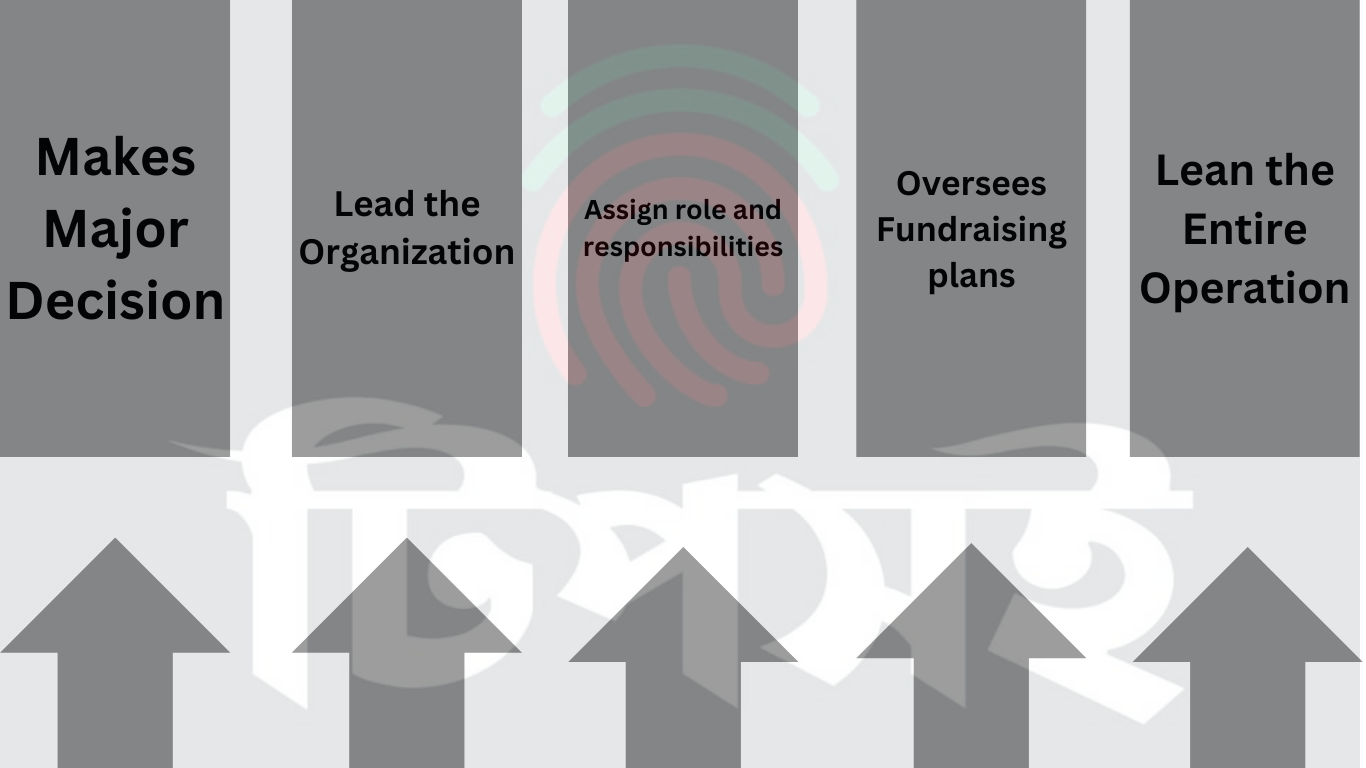
Learn about the full form of CEO role and responsibilities of a CEO, or Chief Executive Officer, in leading and managing a company.” “Explore the skills and qualities necessary for success in this top-level executive position.
Full form of CEO:
A CEO, or chief executive officer, is the highest-ranking executive in a company or organization.
The CEO is responsible for overseeing each and every detail’s in a company .
What is the role of a CEO in a company?

- Developing and implementing the overall business strategy
- Setting goals and objectives for the organization
- Leading and managing the executive team
- Making key decisions related to finance, marketing, and operations
- communicating with shareholders and other stakeholders
- Representing the company to external parties, such as investors, the media, and regulators
- ensuring the company complies with all laws and regulations
In order to be an effective CEO:
- A person must have a strong combination of leadership skills, business acumen, and strategic thinking.
- They should be able to inspire and motivate their team, make hard decisions.
- One of the key challenges for a role of a CEO is balancing the short-term needs for the business.
- The role of a CEO often involves making tough choices, including investing infrastructure to improve the business.
- CEO must also be a strong communicator and have the ability to build relationships .
- CEO must be able to clearly articulate the company’s mission and values and build trust with all stakeholders.
- Another important aspect of the CEO’s role is managing risk. This includes identifying potential threats to the business and implementing strategies to mitigate those risks.
- CEO also involves making informed decisions based on data and analysis and being willing to take calculated risks.
- Ultimately, the success of a CEO is judged by the performance of the company. This includes financial metrics such as revenue, profits, and shareholder value.
How does the role of a CEO of a software firm differ from that of other CEOs?
The role of a CEO in a software firm may have some unique characteristics than others.
CEO of a software firm may have specific responsibilities related to the development and management of technology products or services. This could include overseeing the research and development of new software or hardware or managing partnerships with technology vendors.
The CEO of a software firm may need to have a deep understanding of the rapidly evolving technology industry. This may involve staying up-to-date with the latest developments in technology and anticipating future market needs.
CEO of a software firm is the importance of digital transformation and the integration of technology throughout the organization. The CEO may need to lead the company in adopting new technologies and processes that can improve efficiency and competitiveness.
What skills should a CEO have to run a company successfully?
For a CEO to run a company well, they need to have a number of skills and traits, such as:
Leadership: A CEO should be able to inspire and motivate employees and effectively manage and delegate tasks.
Strategic thinking: The CEO should be able to come up with a long-term plan and vision.
Business acumen: A CEO should understand finance, operations, and marketing and be able to make informed decisions.
Communication: A CEO should be able to communicate the company’s mission and values with with employees, investors, and other stakeholders.
Problem-solving: A CEO should be able to spot and fix issues that come up while running a business.
Adaptability: The CEO should be able to change the business strategy based on how the market is doing.
Integrity: A CEO should have strong moral values and be committed to ethical business practices.
Decision-making: A CEO should be able to make tough decisions under pressure and accept responsibility for the consequences.
In short, a successful CEO should be a strong leader, a strategic thinker.
They should also have good communication and problem-solving skills, as well as the ability to adapt.
How adaptable does a role of CEO have to be ?
The adaptability for the role of a CEO with regard to the market will depend on the specific industry.
In general, it’s important for a CEO to adapt to changing market conditions and change the business strategy
This may involve adjusting the company’s product or service offerings, exploring new markets or partnerships, or changing the business model. A CEO is able to quickly respond to market shifts and identify opportunities for growth.
Similarly, it is important for a CEO to maintain a long-term goal and not to be affected with immediate issues.
The CEO should strike a balance between the need and company’s mission and values.
CEO needs to be able to adapt because it helps them deal with a constant changing business world.
Are directors more powerful in a company than the CEO?
Board of directors is typically responsible for overseeing operations and strategy , while the CEO is responsible for implementing decisions.
The board of directors may be considered more powerful than CEO, as they have the authority to make top-level decisions.
However, the influence of the board of directors and the CEO can vary depending on work of the organization. In some companies, the CEO may have a strong relationship with the board and have significant input into decision-making. In other cases, the CEO may be more constrained by the board of directors and have less freedom.
It is important to note that the roles of the CEO and the board of directors are ultimately complementary. The CEO is in charge of putting the board’s strategies and decisions into action. The board’s job is to keep an eye on the CEO and the rest of the organization. Overall, while there are many commonalities in the role of a CEO across different types of companies, the specific responsibilities of a CEO at a computer firm may be shaped by the nature of the industry and the products or services offered by the company.
Conclusion:
In summary, the role of a CEO is multifaceted and requires a range of skills and competencies. The CEO is the leader of the company and has a big impact on its success. He or she sets the overall strategy and direction of the organization, manages risk, and drives performance, among other things.
